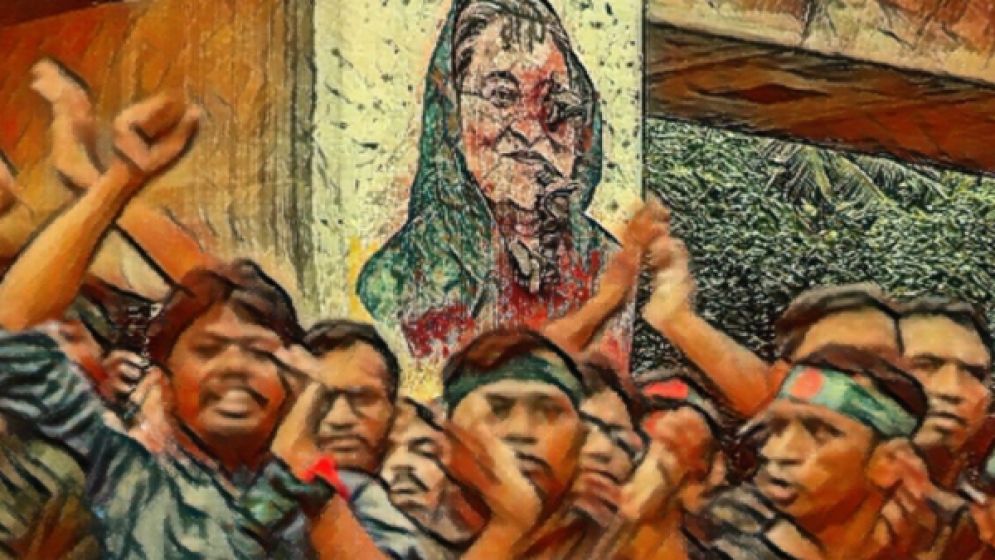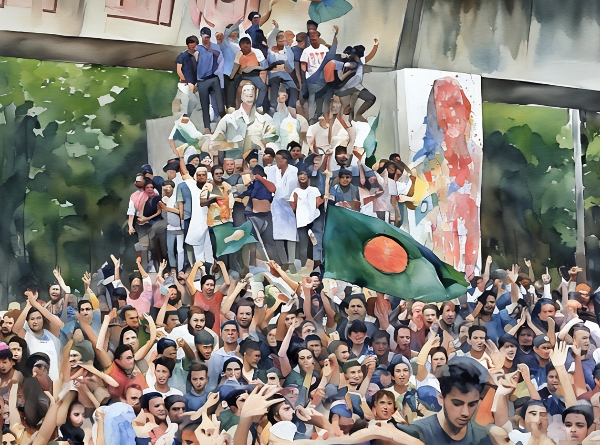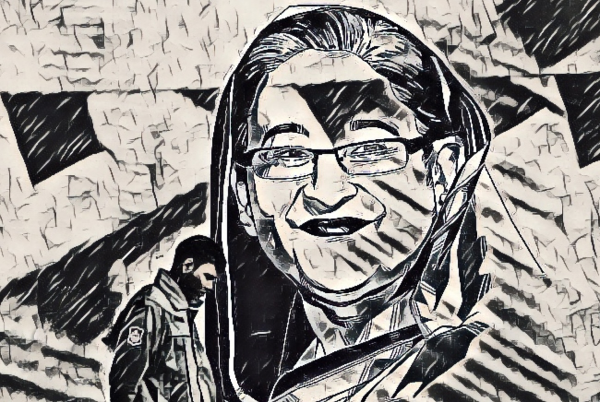Bringing Hasina to justice: Legal pathways or dead ends?
Fahim Abrar Abid
Publish: 21 Sep 2024, 03:00 PM

Following a month of student-led protests demanding quota reform in Bangladesh, the Awami League's 16-year rule ended on August 5th when former Prime Minister Sheikh Hasina resigned and left the country for India.
An interim government, under the leadership of Nobel Laureate Dr. Muhammad Yunus, assumed power on August 8th and initiated investigations into the deaths of over 600 individuals and injuries to thousands more during the protests.
Charges are reportedly being prepared against Hasina and her associates for allegedly ordering the police and Chatra League to carry out illegal mass killings, torture, and unlawful detentions to suppress the demonstrations.
Md. Touhid Hossain, the interim government's foreign affairs adviser, has stated that there is a firm resolve to hold Hasina accountable for the alleged crimes in response to widespread demands for justice.
The preferred approach appears to be pursuing international criminal proceedings before the International Criminal Court (ICC) and the International Crimes Tribunals, Bangladesh (ICT-BD).
Although at least three other legal options exist, all but one are either theoretically or practically inaccessible.

What are the options?
Firstly, Sheikh Hasina's case before the ICC may face admissibility issues under the principle of complementarity, as Bangladesh's domestic legal system appears capable of addressing the alleged crimes of murder, torture, and enforced disappearances, evidenced by previous prosecutions for international crimes in the ICT-BD.
Additionally, since India is not a party to the Rome Statute, the ICC cannot exercise jurisdiction over the country where Hasina has sought refuge. This presents further complications, as the ICC does not permit trials in absentia and cannot compel India to extradite her.
Secondly, while the ICT-BD has made strides in addressing delays related to the 1971 genocide and providing some justice, it has faced significant criticism for its retrospective application of capital punishment and life sentences, the lack of due process rights for defendants, and limitations on interlocutory appeals.
The tribunal has also been heavily criticized for its perceived politicization, which served the interests of the previous regime, raising concerns about its credibility.
There are fears that it could favor the interim government or any future administration, casting doubt on the impartiality of the justice system. This suspicion has been heightened by the recent appointment of a former defense lawyer and representative of a Jamaat-e-Islami leader as the new Chief Prosecutor of the ICT-BD.
Thirdly, anyone who suffered under Hasina's regime, whether during the 'July Massacre' or any other time in the past 16 years, can seek justice through Bangladesh's courts. However, enforcing any judgment would require her to be in the country.
The fourth option, aut dedere aut judicare, is not widely preferred but relates to the obligation to either prosecute or extradite under Article 7 of the Convention against Torture.
If a country finds someone accused of an offense on its territory and doesn't extradite them, it must prosecute them. Both India and Bangladesh are signatories, but India hasn't ratified it, so it's not bound by this law.
However, this principle is recognized in Customary International Law, as established in the Belgium vs. Senegal case.

Analyzing the options
The first and fourth options are limited in their potential impact, while the second and third options face practical difficulties.
Even if Hasina is found guilty, prosecution is unlikely because she's not in Bangladesh. The ICC has no authority over India, where she is, and India hasn't ratified the Rome Statute. Some suggest a UN Ad Hoc Tribunal for fact-finding, but that would take time to set up.
With other options seemingly closed, the 2013 Extradition Treaty between Bangladesh and India offers a potential solution. Extradition returns a fugitive to the country they fled from.
There have been successful cases, but Article 6 allows extradition requests to be denied if the offense is considered political.
However, a closer look at Article 6 reveals that crimes like murder, incitement to murder, false imprisonment, and unlawful detention, along with any offenses covered by multilateral treaties both India and Bangladesh have signed, are not considered 'political offenses' for extradition purposes.
So, if Hasina is found guilty of any of these crimes, the exception wouldn't apply. Several multilateral treaties both countries have ratified, like the ICCPR and the Convention on the Rights of the Child, further support this.
Therefore, the most likely way to bring Hasina back seems to be through this Extradition Treaty.
Nevertheless, India has yet to clarify the nature of its accommodation of the deposed Bangladeshi prime minister. Hasina has longstanding ties with India, having sought asylum there in 1975 following her family's assassination.
However, Indian scholars and political analysts contend that India cannot host Hasina indefinitely, as doing so could complicate relations with Bangladesh's interim government and jeopardize the close economic ties between the two nations.
In conclusion, the Modi government, which is said to have a strong relationship with Sheikh Hasina, may soon find itself in a diplomatically and politically precarious position.
This is due to the fact that if the interim government of Bangladesh formally requests her extradition before she has the chance to seek refuge in another country, especially since her diplomatic passport has been revoked and the 45-day visa-free period is coming to a close.
—
Fahim Abrar Abid is an Erasmus Mundus scholar of International Law of Global Security, Peace and Development at the University of Glasgow and is the Coordinator of the Bangladesh campaign of Global Human Rights Defence, a UN ECOSOC NGO.
